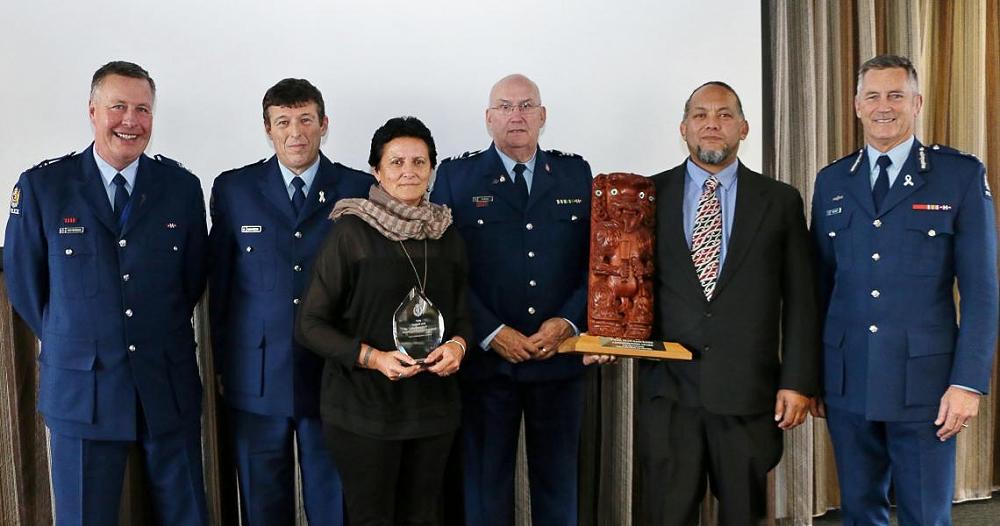
Reducing Māori youth offending
Sergeant Tom Brooks is building partnerships that are transforming the lives of young people and their families.
As the Manager of Youth and Community Services for the New Zealand Police in the Eastern Bay of Plenty Area, Sergeant Tom Brooks was determined to improve outcomes for Māori who come to the attention of the Police. He worked closely with the Tūhoe iwi to build trust and develop an alternative to the more formal Youth Justice System. The result was Oho Ake, an initiative in which Police and Tūhoe work together to reconnect troubled youngsters with their Māori culture and steer them and their whānau away from crime.
In suitable cases youth offenders are referred to Tūhoe Hauora, which works with the offender's whānau to develop a whānau plan. This includes assessment of the family’s needs and any underlying issues, setting of short and long-term goals for the whānau and offender, and ensuring the young person is held accountable for their offending. Police are advised of progress at a review at three months and decide whether the case can be closed. Tūhoe Hauora continue to work with the whānau, sometimes for 18 months or more.
Oho Ake has been credited with dramatically reducing the number of young Māori in the justice system in the Eastern Bay of Plenty since the programme began in 2010. An independent evaluation in 2014 showed 49% had not reoffended and the remaining 51% had significant gaps before reoffending. Most of the young people involved had re-entered education or employment, their parents were more involved in their lives and substance misuse was falling. Tom said in Whakatane alone in 2012/13 Youth Aid staff had 130 Family Group Conferences with 73 young people; in 2016/17 this was down to 33 FGCs with 23 offenders.
“There are currently now just seven young people in the court system in Eastern Bay of Plenty – that’s quite remarkable,” he said.
Oho Ake has won the Supreme Award in the 2017 Evidence Based Problem Oriented Policing (EBPOP) Awards, and also the award for Excellence in Achieving Collective Impact.
In the last few years Tom has taken this work further by:
- Helping three other districts adapt the Tūhoe model for their own regional alternative action initiatives.
- In partnership with others leading the development of a new initiative, Hui-a-Whānau, with Tūhoe and with Oranga Tamariki to provide iwi-led Family Group Conferences in Youth Justice and care and protection cases.
The change management process required to implement Oho Ake and Hui-a-Whānau was the subject of Tom's thesis for his Master of Professional Practice, with facilitator James Harrison and academic mentor Glenys Ker. Key influencers need to be on board but that is not enough. Empowering communities to identify and address issues affecting them requires a culture change in the police and other relevant government departments. Relationships are also critical to success, building a high degree of trust and confidence on all sides. Tom hopes this process will become a blueprint for government departments working in partnership with communities, especially with Māori.
“By undertaking work based learning it has more relevance and meaning to the individual and then, how theory of others then fits or not in that learning. To see what is out there and others are doing really helps, but you cannot beat the learning when it has some practical application to your work. I really enjoyed researching for the literature review, that for me was a huge help when it came to putting things together."
Read more about the Master of Professional Practice programme.
